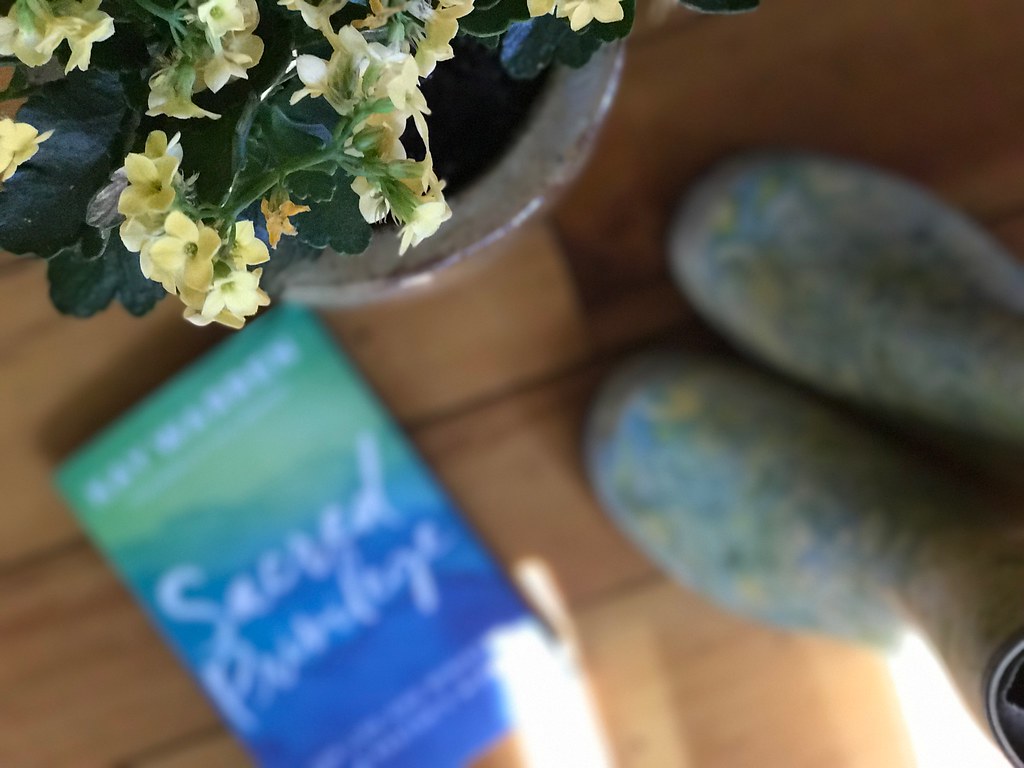It is rare to find a friend who step through the barriers of social pleasantries and enters a deep place where only soul sisters can be found; my dear friend Kay is one such person in my life. While distance separates us; our hearts are united in our Father’s heart — this woman is a mentor, a prayer warrior, and one of the best heart listeners I’ve ever known. Kay is a deep well of wisdom, commitment to our Savior, and compassion for the most vulnerable in our world. She has written a book for pastors’ wives called Sacred Privilege – but honestly her words will strengthen and challenge all who read it. It’s a grace to welcome Kay to the farm’s front porch today…
I don’t know how many of you are to-do list makers, but I am a compulsive list maker.
I’ve got them everywhere—on scraps of paper, on big pieces of paper, on my computer. I’ve even been known to scribble them on my hand. I blame my mother.
What I have discovered is that life never cooperates with my to-do lists. Ever.
You’ve got your day planned. You know what’s supposed to happen. You know who you’re supposed to talk to, you know who you’re supposed to see, you know what tasks you’re supposed to accomplish. You’ve got it all set out.
Then life and interruptions come and what you had planned to do just doesn’t get done, just doesn’t happen the way you think it should.
I can get really upset about that.
When my kids were at home, I used to tell them, “Woe to the child who messes with Mama’s schedule. You are asking for serious trouble.”








I’ve since learned it is a sign of immaturity to get uptight when my schedule doesn’t go the way I want it to go.
On the reverse, it is a sign of growing godliness when you are flexible and bendable as life comes your way.
When we put Psalm 31:15, “My times are in your hands,” into practice, we reduce the stress in our lives. This verse becomes a prayer. “My times are in your hands, God. You are directing my life. You know the things I’m supposed to get done.”
So if interruptions come, if things go differently, I can either get all bent out of shape and angry at the people who interrupted me or the situations that messed up my schedule, or I can flow with the changes in a gracious way, believing that God has my times in His hands.
Mark 5:21–43 begins with Jesus on his way to heal the dying daughter of Jairus, a synagogue leader. It’s an emergency situation. As Jesus heads to Jairus’s house to heal the dying child, a woman with a chronic health problem—the Bible says she has been bleeding continuously for twelve years—approaches Jesus to touch His clothes. She believes if she does so, she’ll be healed. She touches the hem of His robe, and He instantly knows and turns to speak to her.
Anyone in an emergency situation knows you don’t stop for non-emergencies—you put all of your energy into taking care of the life-and-death situation first. We call that triage.
But in an astonishing response to the woman with a non-life-and-death condition, He pauses, talks to her, and heals her.
That just doesn’t compute to me. Here is a girl who is near death. In fact, while Jesus lingers with the woman, Jairus receives word that his daughter has died.
Shouldn’t Jesus get it in gear and madly rush to revive her?
Instead, He stops and talks to a woman who isn’t dying, who isn’t in an emergency, who isn’t in a critical situation.
You have to ask the question, why did He do that? Why did He allow someone to interrupt Him and even detain Him in the middle of a very serious situation?
Scripture is never random or meaningless, so there must be deep truth hidden in this odd, seemingly illogical, if not unkind (to Jairus and his daughter) encounter.
I wonder if the principle we should grasp is this: sometimes the interrupted is not as important as the interrupter.
Did you get that?
We often act as though our plans for the day, our agendas, are sacred—untouchable and completely uninterruptable.
But God might know something we don’t and allow us to be interrupted, which often completely destroys our carefully constructed to-do lists.
Evidently, there are times when the interrupter—a child, a friend, a stranger, a situation—is more important than the interrupted—me.
Honestly, I don’t like that. I still want my schedule.
But the truth is God knows what my day should hold. God knows what your day should hold.
He knew before you got up this morning what was going to happen to you today.
He knew the emergencies. He knew the things that weren’t emergencies but that were going to masquerade as emergencies. He knew the things that were going to come into your life and were going to derail you from what you thought you were supposed to do and who you were supposed to talk to and what you were supposed to accomplish.
I don’t have the answer other than to say that too often we assume the interruptions are not important. Too often we think we know what today is supposed to hold and that an interruption can’t be as important as what we had set out to do.
What I’m trying to learn to do is to pause and say, “Okay, God, my times are in your hands. You knew what this day was going to hold before I did, so this interruption—child, husband, phone call, unexpected demand on my time—is in your hands. Don’t let me make the arrogant mistake of assuming that my schedule is what must be honored, not the interruption that you bring.”
Don’t mishear me. Every interruption that comes your way is not important.
Sometimes interruptions come because we live in a broken world and bad things happen.
A three-car pileup on the road in front of you isn’t necessarily a good interruption.
But with every interruption we have the opportunity to go to God, to seek His face, to talk to Him, and to hear His voice.
He’ll either let you know that the interruption is part of what He has for you today or give you the insight to be able to sidestep the interruption so you can get back to the task or goal at hand.
In either case, He’ll give you the grace to know that everything is in His control no matter what.
Kay Warren cofounded Saddleback Church with her husband, Rick Warren, in Lake Forest, California. She is a passionate Bible teacher and tireless advocate for those living with mental illness, HIV&AIDS, and for the orphaned and vulnerable children left behind. She founded Saddleback’s HIV&AIDS Initiative. Kay is the author of Choose Joy: Because Happiness Isn’t Enough and Say Yes to God and coauthor of Foundations, the popular systematic theology course used by churches worldwide.Life in ministry offers meaningful opportunities to play a significant part in God’s work, to witness and participate in the beauty of changed lives. Yet it also carries the potential for deep wounds and great conflict that can drain the joy out of service. Is it worth it? It is more than worth the risk--it’s a sacred privilege. In Sacred Privilege, Kay provides encouraging principles and life lessons drawn from more than forty years in ministry, along with intimate personal stories, that will give you the confidence you need to lead and live well. A deeply helpful, needful, soulful read.
[ Our humble thanks to Baker for their partnership in today’s devotion ]








